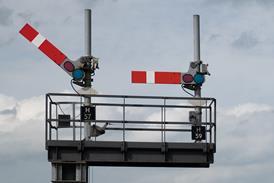ON JUNE 6 Royal Mail shocked the UK rail industry by announcing that it was ending its 10-year contract with English Welsh & Scottish Railway signed in 1996. From April 2004 all mail will be carried by air or road. Managing Director, Logistics, Paul Bateson claimed this would result in ’reduced impact of our distribution network on the environment through more efficient use of road vehicles’. EWS calculated that the change will add 49 million lorry-km a year to the roads.
According to Royal Mail, the company had failed to agree terms with EWS for a new contract competitive on cost with a hub-and-spoke road network. It just so happens that Royal Mail’s recently-opened National Distribution Centre in the Midlands is exclusively served by road, suggesting that the decision to pull out of rail was taken much earlier.
We understand that EWS was seeking to renew its contract for about £50m, but Royal Mail, which is controlled by the Department of Trade & Industry, claims that the revised arrangements will save it £90m. Bateson said that ’quite simply, other forms of transport can give us the same benefits in terms of flexibility and quality, but at lower cost’. A not unrelated issue is that EWS charges attract 17·5% value added tax, which Royal Mail cannot reclaim, but running its own lorries is an internal transaction that is not subject to VAT.
The decision will dismay EWS, whose board announced on June 4 that it had completed a strategic review of the business begun last September. Whereas EWS had previously been considered for sale, the directors felt that the sum to be realised from a flotation or sale of shares ’was unattractive relative to the prospects for the business’. Royal Mail’s move is hardly encouraging for other companies considering using rail as an alternative to congested motorways. In the meantime, anyone interested in a fleet of 16 dual-voltage four-car EMUs built in 1994 for carrying mail at 160 km/h (above) should contact Royal Mail.




















